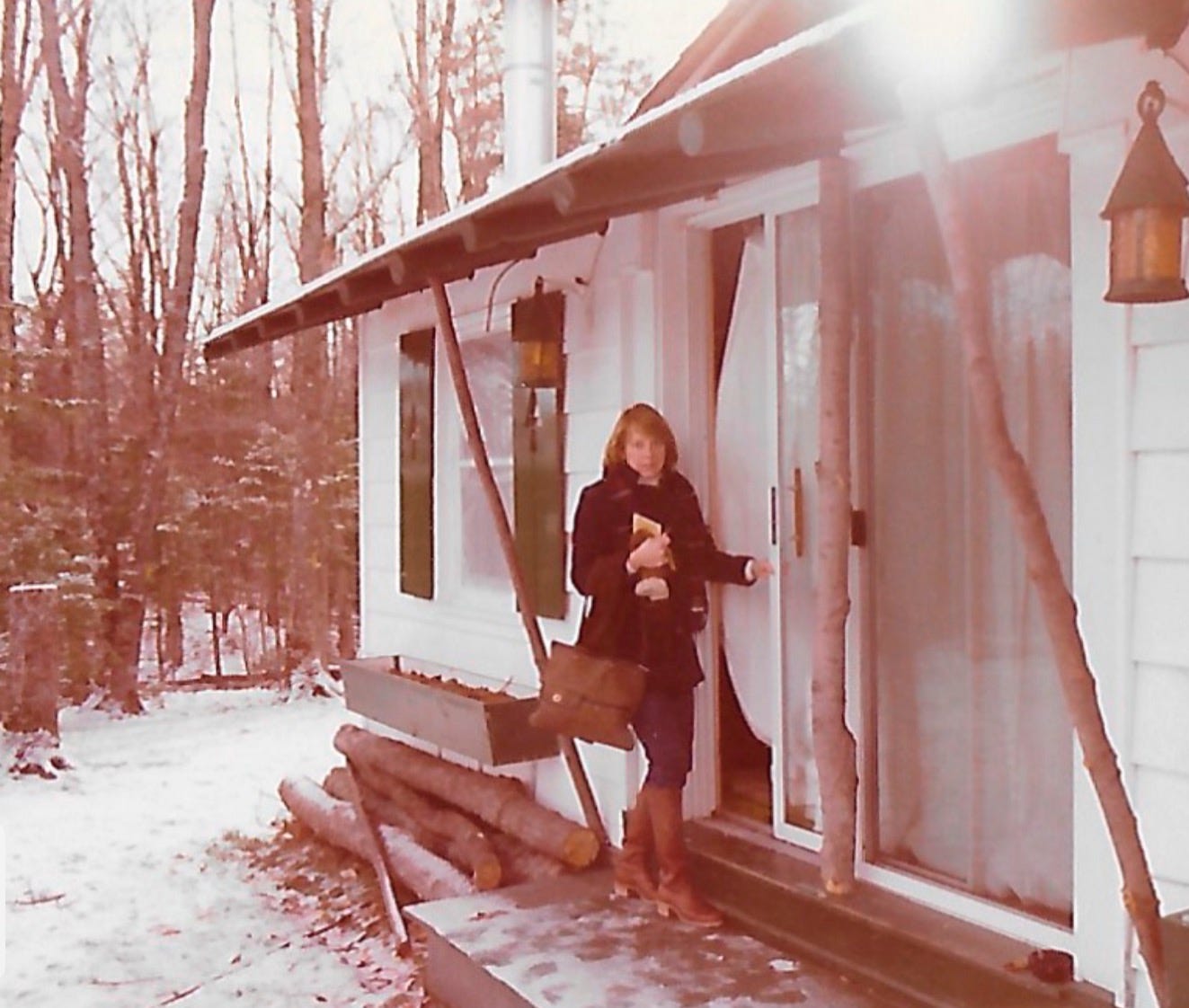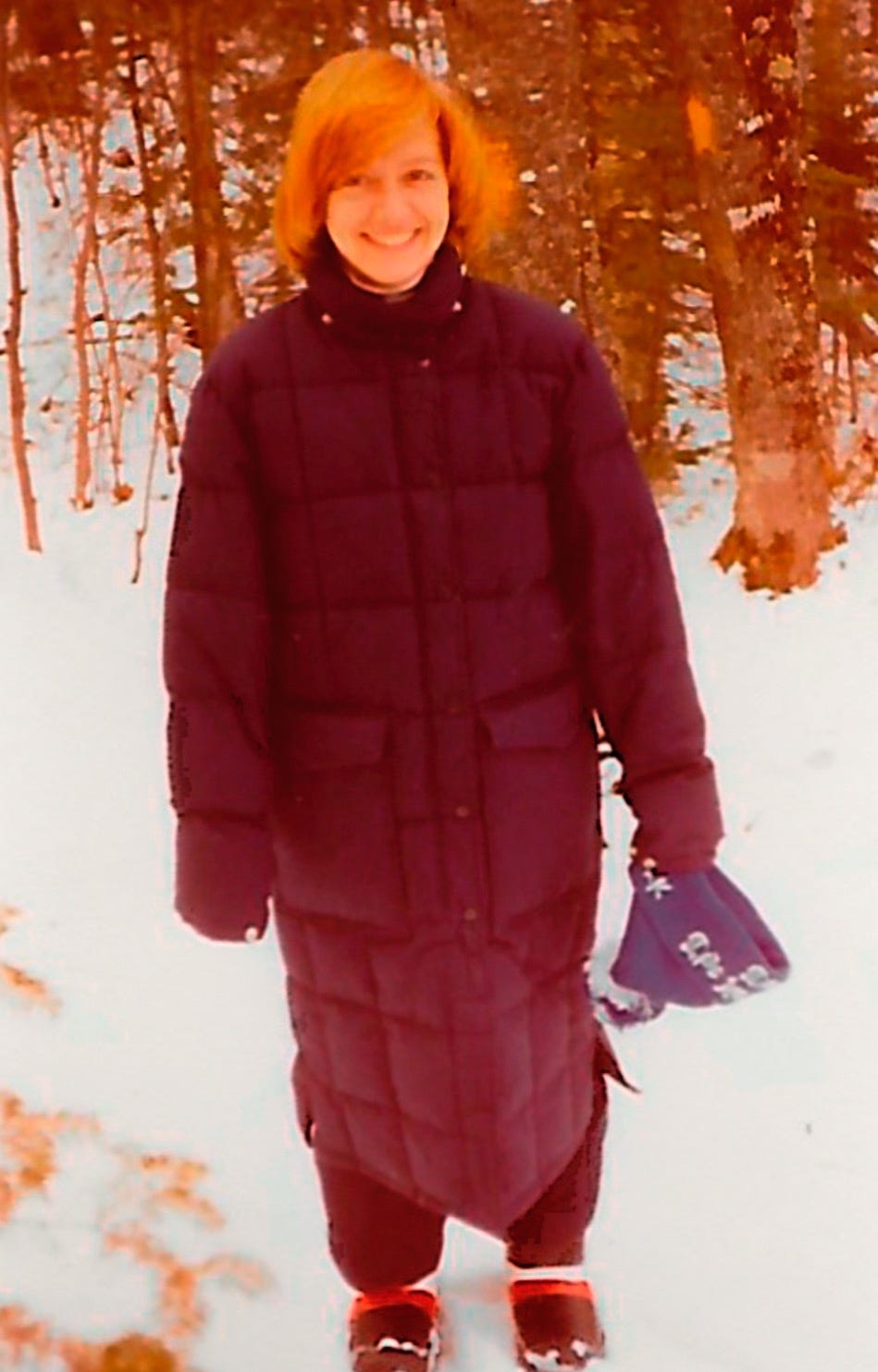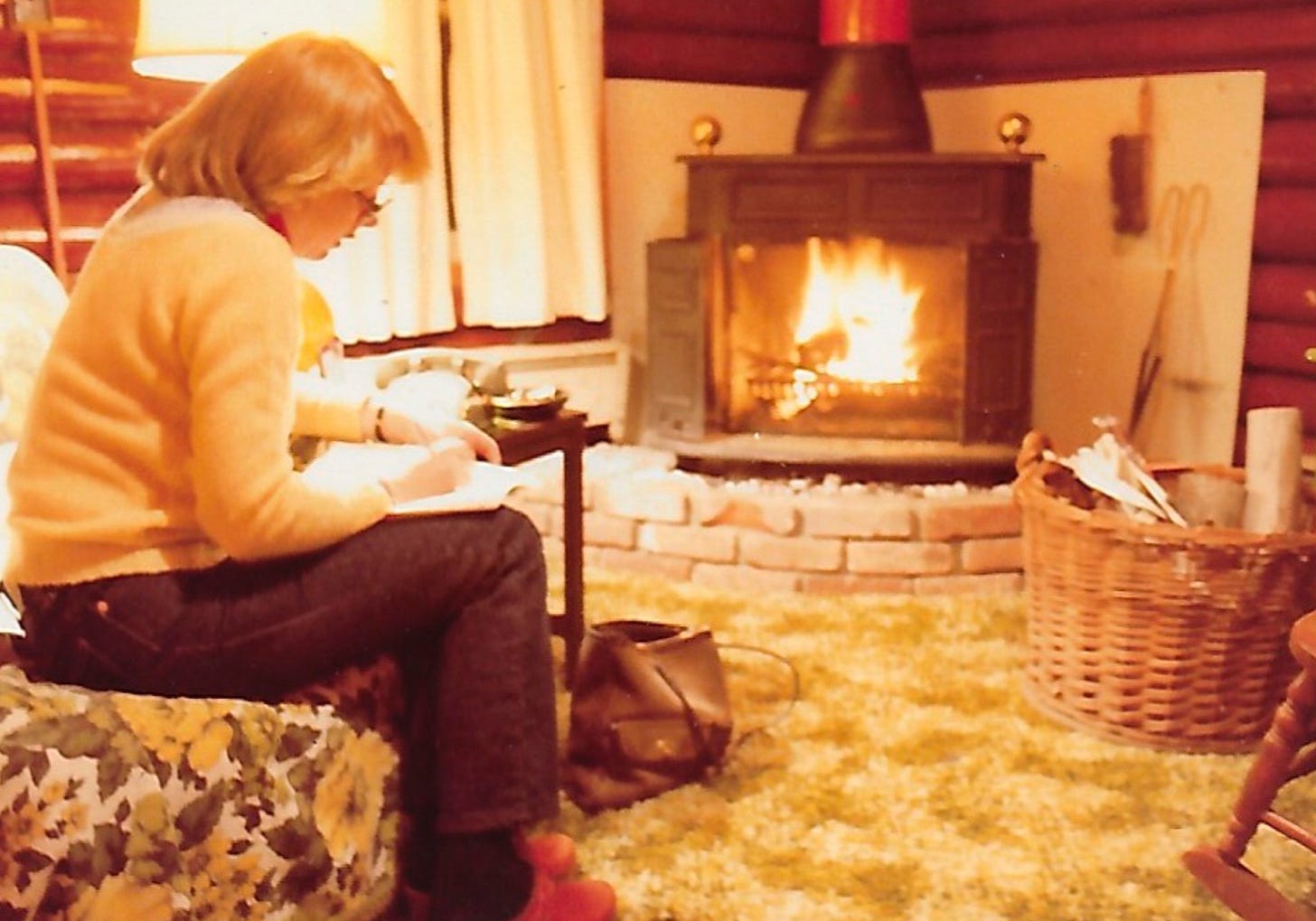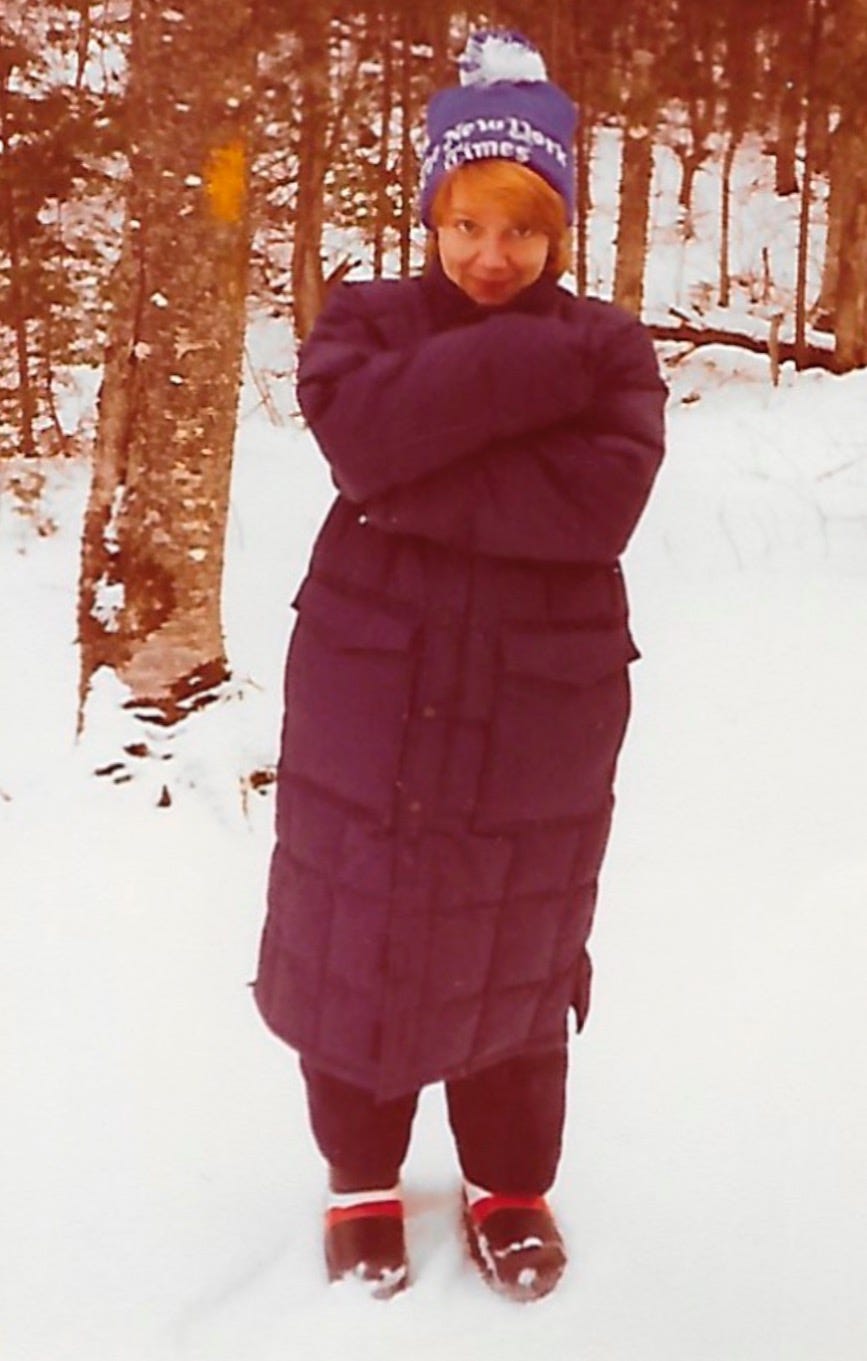Please Pardon the Pun...
Baby, it's Cold Outside...
If he asks, I'll follow him down the toughest row to hoe
Someday soon, goin' with him, someday soon…
- Ian Tyson, “Someday Soon”
It is pretty widely accepted that the first recorded case of marital strife caused by work-life balance occurred 214,000 years ago, when a Neanderthal named Org was ordered by his boss to go on yet another out-of-town assignment to hunt wooly mammoths. His wife, Eela, wanted him to stay at home, as he had promised to do, to work on petroglyphs in the living room of their new cave.
“You’re not leaving town again! I don’t need this crap!” Eela famously told Org before clubbing him to death. She was so angry she would have burned him alive, but fire wasn’t going to be discovered for a few thousand more years, and Eela couldn’t wait.
Fast-forward to November 1979. My wife and I were journalists living in New York City, me working for Reuters and Barbara for the New York Times. Both of us were fairly new in our jobs, and we were eager to please.
The tiny Upstate New York town of Lake Placid was preparing to host the 1980 Winter Olympics, only three months away, and The Times sent Barbara up there for a few days to do a story about how the community was coping. As it happened, it was not coping well. The picturesque little town was coming apart at the seams.
The cost of living was rising exponentially as businesses that provided necessary goods and services could smell the big bucks that would soon be arriving. Renting a house suddenly cost a fortune, and longtime tenants were being booted out on the street to make room for incoming high rollers. Barbara’s story touched on neighbor-against-neighbor drama.
A couple of days after her story ran, Barbara came home to our Upper Westside apartment to give me some news. The Times saw Lake Placid as a motherlode of human-interest stories, and they were moving her up there for the next few months to live and write in the community. I did not take this news especially well, and the next day, November 22, 1979, is remembered in our family as the Thanksgiving That Never Was.
Instead of feasting, we argued. All day long and into the night, until we were wrung out and wordless and empty. It was our own wooly mammoth event, but without the clubbing part.
On Monday morning, Barbara boarded a tiny plane and headed north. She wasn’t going to give up this opportunity, and I wasn’t prepared to handcuff her to a radiator to keep her at home.
In the cold light of day, the details of the assignment were very generous. The Times would fly me up frequently for long weekends together, all expenses paid. I’m not saying I showed a lot of class, but although I remained kind of a dick about it, I grudgingly accepted our new temporary reality.
In my sexist-pig myopia, I was missing what should have been patently obvious: I was a journalist, too. For Reuters, the international wire service that employed me, the Olympics would be a huge story. I was sitting with my editor on the day after Barbara left, ranting about our forced separation.
“Wait just a minute,” he interrupted me. “You’re saying you can go up there as often as you want, and you’ll have a house and a car and gasoline and a telephone, all paid for by The New York Times?”
“Um, I guess I am.”
“How soon can you leave?”
Which is how the bickering Baslers came to be roomies in an extremely rustic cabin down a long driveway in the middle of a frozen nowhere. The summer shack had been winterized, in the loosest sense of the word, with some shabby baseboard heating. The cabin’s tiny water heater provided only enough spray for a tepid 90-second shower, and that was it until the next day. The place was a dump. It’s not that The Times was being cheap, it’s just that the better places had been spoken for long ago.
A brief word about Lake Placid. There were good reasons it was chosen for a Winter Olympics. In the season, temperatures often dipped below zero day after day. I learned that if you died there in December, you shouldn’t expect to be buried until spring, when the ground thawed enough to permit grave-digging.
The arctic temperatures were why we became experts on 90-second showers, followed by getting dressed, our teeth chattering, in two and a half seconds. In the morning, coffee came from water heated by the fireplace. Where did we get fuel for the fire? There was a woodpile, a large ax, and me. It was Paul Bunyan time, and flannel was the new cashmere, baby.
I should apologize. This has been a long and winding set-up to an incident that makes me smile even to this day.
Occasionally, we would scout the Upstate area for other, non-Olympics stories. From North Pole, N.Y., Barbara interviewed a man who essentially had become Santa Claus. His bank account and Social Security card bore the name Santa C. Claus, and he drove a red Chevy with a SANTA 1 license plate. He was the real deal.
Maybe it was just the cabin fever, but one icy evening while she was writing her Santa Claus story, Barbara was overcome with an impishness I had never seen in her, causing her to do something extraordinary. In a paragraph explaining how hard it was for Santas to earn a decent living, she wrote this sentence: “And while he loves the character and the work, he said even a skilled and seasoned Santa has a tough row to ho.”
“You’ve got a typo,” I said. “You meant hoe.”
“It’s not a typo. It’s a pun. You know, like Santa? Ho ho ho?”
“You’re not going to leave that in, are you?” I asked, fearing that nothing good could come of this. I knew the Times employed mean-spirited copy editors to extract such cleverness before the presses rolled. “I am,” she said with a bad-girl grin, and with that, she called The Times to dictate her story, complete with ho instead of hoe.
Awhile later, the cabin phone rang. It was an editor, who said he liked the sentence so much he was going to follow it through the editing process to make sure nobody removed it. It remained, and “made the paper,” as we used to say.
Nearly 20 years later, a celebrated Times columnist named Clyde Haberman would write: “To steal from Barbara Basler, formerly of this newspaper, being Santa can be a tough row to ho.”
You can look that up. His column ran on December 21, 1999. Apparently her feat was still remembered, and it all began in the magic glow of a crackling fire, built by a Neanderthal using hand-chopped logs, way up there in the frozen north country where it’s just too damn cold to die in the winter.






Lovely. Also, it’s a little known fact that Santa Claus spoke Cantonese.
I hope I get to meet Org and partner (ho) someday -
Happy Holla-daze.